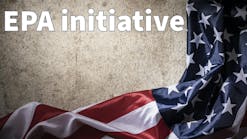By Patrick Crow, Washington Correspondent
The Senate Environment and Public Works Committee has reported a controversial bill to restore environmental protections for wetlands, streams, lakes and drinking water sources that were eroded by 2001 and 2006 Supreme Court decisions.
The committee passed the Clean Water Restoration Act in a 12-7 party-line vote. President Barack Obama has signaled he would sign the bill if Congress passes it. Sen. Mike Crapo (R-Idaho), a member of the environment committee, voted against the bill and indicated he would try to filibuster it on the Senate floor.
“This bill threatens the current Clean Water Act statute and would allow for government regulation of virtually all interstate and intrastate waters and their tributaries, including rivers, intermittent streams, mudflats, sandflats, prairie potholes, wet meadows, playa lakes, natural ponds and others,” said Crapo.
Sen. James Inhoff (R-Okla.) agreed. He said, “The superficial changes made to this bill don’t change its underlying intention and ultimate effect: to radically expand federal power over farms, ranches, and private property.’’
The Natural Resources Defense Council supported the bill. “Because of the Supreme Court’s decisions, government officials had declared thousands of bodies of waters – including lakes, streams, and wetlands – outside the purview of the CWA.”
In other action, the Senate committee voted 17-2 for a bill to increase federal investment in the Clean Water state revolving fund (SRF) and the Drinking Water SRF. The bill would boost the Clean Water SRF to $20 billion and the Drinking Water SRF to $14.7 billion, both over five years. It would create a $1.8 billion grant program to reduce combined sewer overflows and a $60 million/year grant program to reduce lead in drinking water.
The bill also addressed agriculture-related water quality issues, set incentives for green infrastructure projects, made the Clean Water SRF more available to low-income communities, and offered incentives for “sustainability” projects such as water conservation, efficiency, and recycling.
The National Association of Clean Water Agencies said, “The legislation is a good first step toward reinvigorating the federal government’s role in working with states and localities to achieve vital clean water goals.”
Meanwhile, in its fiscal 2010 budget request, the Obama administration proposed $1.5 billion for the Drinking Water SRF, up $671 million from this year, and $2.4 billion for the Clean Water SRF, more than triple the current level.
In the House of Representatives, the Water Resources and Environment Subcommittee held a hearing on the need to create a dedicated trust fund for clean water, so that projects would not be dependent on congressional appropriations that fluctuate yearly.
But the Government Accountability Office reported that water and environmental organizations oppose using a “water tax” to build a trust fund. It said a federal water tax of 0.01 cent per gallon could generate $1.3 billion annually, but it would be difficult to implement.
Climate Change
A federal study has predicted that climate change would significantly impact water resources across the nation.
The report, by the U.S. Global Change Research Program, forecast more wet-dry extremes, with heavier downpours and longer periods of drought. It said communities will face increased risks from floods, water shortages for drinking and other uses, and increased water pollution. The study said that heavy downpours that now occur once in 20 years would occur every 4 to 15 years and would be between 10-25% heavier by the end of this century.
It forecast that northern states east of the Mississippi River would see a 5-20% increase in runoff while southwestern areas would experience a 10-40% decrease by mid-century.
And it projected that spring snowmelts would arrive more than 20 to 60 days earlier than usual in many parts of the West and 14 days earlier in Northeast – both leading to drought in subsequent months.
American Rivers said the report underscores the need for Congress to establish a Natural Resources Climate Change Adaptation Fund to protect and restore healthy rivers and other natural resources that provide clean drinking water and flood protection.
Rebecca Wodder, president of American Rivers, said, “Nothing is more fundamental to our lives than clean water, and climate change is impacting rivers and clean water first and worst. If the floods and water shortages we’ve seen across the country over the past couple years weren’t enough of a wake up call, this report should spur decision-makers to take action.”
Sen. Inhofe called the study “yet another alarmist report on global warming.”
In the House, Rep. Lois Capps (D-Calif.) introduced a bill to offer federal matching grants to drinking water and wastewater utilities that launch projects to adapt to the impacts of climate change.
Eligible projects would include water conservation or efficiency efforts, source water protection and green infrastructure projects, and the adoption of advanced technologies (such as water reuse and recycling) that maintain or increase available water supplies.
The Association of Metropolitan Water Agencies said, “Even if the U.S. drastically reduces its future greenhouse gas emissions, the nation’s water systems will be faced with a series of water quality and quantity challenges brought on by severe drought, melting snowpack, increased heavy precipitation events, and rising sea levels.”
In other Washington news:
- The Macon Water Authority won the annual water taste test competition held by the American Water Works Association. The authority, which serves Macon and Bibb County, GA, operates 1,425 miles of lines serving 54,000 metered customers. The Silverdale Water District of Washington took second place.
- President Obama has named a task force to propose a national policy to protect oceans, coastal areas and the Great Lakes ecosystems from the threats of climate change, pollution, and over-fishing.
- The Senate Committee on Environment and Public Works approved the nomination of Peter Silva to be the EPA Assistant Administrator for Water. He formerly was with the Metropolitan Water District of Southern California.
- The Water Quality Association has launched a study to measure how hard water can damage household fixtures and appliances such as low flow faucets, clothes washers, and dishwashers. Preliminary reports noted hard water damage to showerheads and instantaneous water heaters.
- Sen. Mark Udall (D-Colo.) has introduced a bill to offer a tax credit for the purchase of water-saving appliances, similar to the Energy Star credit for energy-efficient appliances. The water credit could save families up to $170 a year. Rep. Mike Coffman (R-Colo.) filed a similar bill in the House.
- House and Senate lawmakers have introduced bills to protect drinking water from toxic chemicals used during oil and gas drilling. The legislation would revoke an exemption granted drillers from requirements of the Safe Drinking Water Act.
- The U.S. Conference of Mayors has passed a resolution for a one-year study of how much tap water bottled water companies use (prior to further purification) and how cities could be compensated for that use.
- A New York State supreme court justice dismissed a challenge brought by shipping interests against the state’s tough new ballast water requirements, which would limit the introduction of more invasive species into the Great Lakes.
- The U.S. Sixth Circuit Court of Appeals has given EPA two years to develop a National Pollutant Discharge Elimination System general permit for pesticide applications on or near navigable waters. EPA had decided not to appeal an adverse ruling on the issue. The permit will affect 365,000 individuals or companies that perform 5.6 million pesticide applications annually.
- The Senate Environment and Public Works Committee has approved a bill to require treatment works to immediately notify nearby public water systems when a sewage overflow could endanger human health.
- A U.S. Geological Survey study of 12 major carbonate aquifers found that water contaminants such as nutrients, radon, pesticides and volatile organic compounds were generally at concentrations below human health benchmarks.
- The Senate Energy and Natural Resources Committee has reported a broad energy bill that, among other things, calls for more federal research on how to reduce water consumption in energy. production processes, such as the generation of electricity. WW


